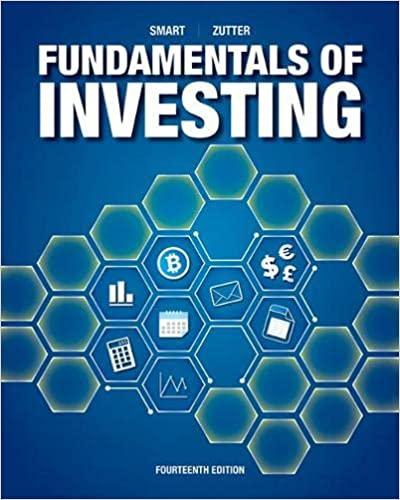Greg and Natalie Wang, both in their 50s, have $100,000 to invest and plan to retire in
Question:
Greg and Natalie Wang, both in their 50s, have $100,000 to invest and plan to retire in 10 years. They are considering two investments. The first is a utility company common stock that costs $50 per share and pays dividends of $1 per share per year (a 2% dividend yield). Note that these dividends will be taxed at the same rates that apply to long-term capital gains. The Wangs do not expect the value of this stock to increase. The other investment under consideration is a highly rated corporate bond that currently sells for $1,000 and pays annual interest at a rate of 2.5%, or $25 per $1,000 invested. After 10 years, these bonds will be repaid at par, or $1,000 per $1,000 invested. Assume that the Wangs keep the income from their investments but do not reinvest it (they keep the cash in a non-interest bearing bank account). They will, however, need to pay income taxes on their investment income. They will sell the stock after 10 years if they buy it. If they buy the bonds, in 10 years they will get back the amount they invested. The Wangs are in the 33% tax bracket.
a. How many shares of the stock can the Wangs buy?
b. How much will they receive after taxes each year in dividend income if they buy the stock?
c. What is the total amount they would have from their original $100,000 if they purchased the stock and all went as planned?
d. How much will they receive after taxes each year in interest if they purchase the bonds?
e. What is the total amount they would have from their original $100,000 if they purchased the bonds and all went as planned?
f. Based only on your calculations and ignoring other risk factors, should they buy the stock or the bonds?
Step by Step Answer:

Fundamentals Of Investing
ISBN: 9780135175217
14th Edition
Authors: Scott B. Smart, Lawrence J. Gitman, Michael D. Joehnk





